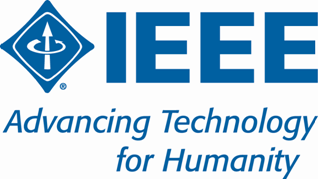|
Traditional electromechanical relays used to detect short circuits on
distribution and transmission lines have been replaced with microprocessor
based-relays that are not only more versatile and more flexible but also
include additional functions such as data recording and fault locating.
This course presents features that must be considered when microprocessor-based
relays are installed at electric utility substations and explains the need for
high-quality products at every step of the engineering, design, and application process.
This course is designed for engineers and technical professionals interested in
learning about the utility industry, with a focus on microprocessor relay and
protection systems. Specific topics to be covered include:
- Zone of Protection
- Redundancy and Reliability
- Physical Separation of Transmission Redundant uP Relay Schemes
- Voltage and Current Inputs
- Analog and Virtual Inputs
- DC Power Requirements
- Supporting Calculations
- Trip and Alarm Outputs
- Acceptance Testing
- Oscillography and Fault Recording Features
- Transmission Circuit Breaker Failure Considerations
- Employment Trends and Demand in Power
At the end of the course, attendees should be able to:
- understand why microprocessor-based protective relays are
installed and the need for rapid fault detection and prompt
fault isolation
- understand the relationship between microprocessor relay inputs,
logic ladders, outputs, and other design features
- recognize increased demands on DC power supplies when installing microprocessor-based relays
- understand why repeat acceptance testing is needed whenever inputs, outputs,
firmware (including relatively minor changes provided by the uP manufacturer), etc., are changed
- discuss the need to address reliable fault detection and security from unwanted actuations
- discuss the need to maintain power-system stability
- understand employment trends, demand, necessary skills and other components needed to
make a successful transition into power technology.
|
|
ERIC DIETZ is a Director in Purdue's Discovery Park, Dr. Dietz is responsible for the catalysis of the Purdue's homeland security research, increasing the impact of Purdue research on society, and organizing interdisciplinary projects within the university. Prior to his current responsibilities, Eric was on loan from Purdue to Governor Mitch Daniels to serve as the founding Executive Director for The Indiana Department of Homeland Security, a new state agency of over 300 people responsible for emergency planning, training, fire and building safety, and disaster response for 6.2 million Indiana residents. During this period, Eric led Indiana's response to 7 Presidential Major Disasters and Emergency Declarations which included restoration and recovery of critical infrastructure. Eric also led the creation of the Indiana Intelligence Fusion Center and the Indiana Fire Training System both new government functions that were created with new laws and funding. Retiring as a Lieutenant Colonel from the U.S. Army in 2004, Dr. Dietz led a number of Army Acquisition and research programs throughout his career including power systems, chemical sensors and command and control systems. Dr. Dietz can be reached at jedietz@purdue.edu. |









